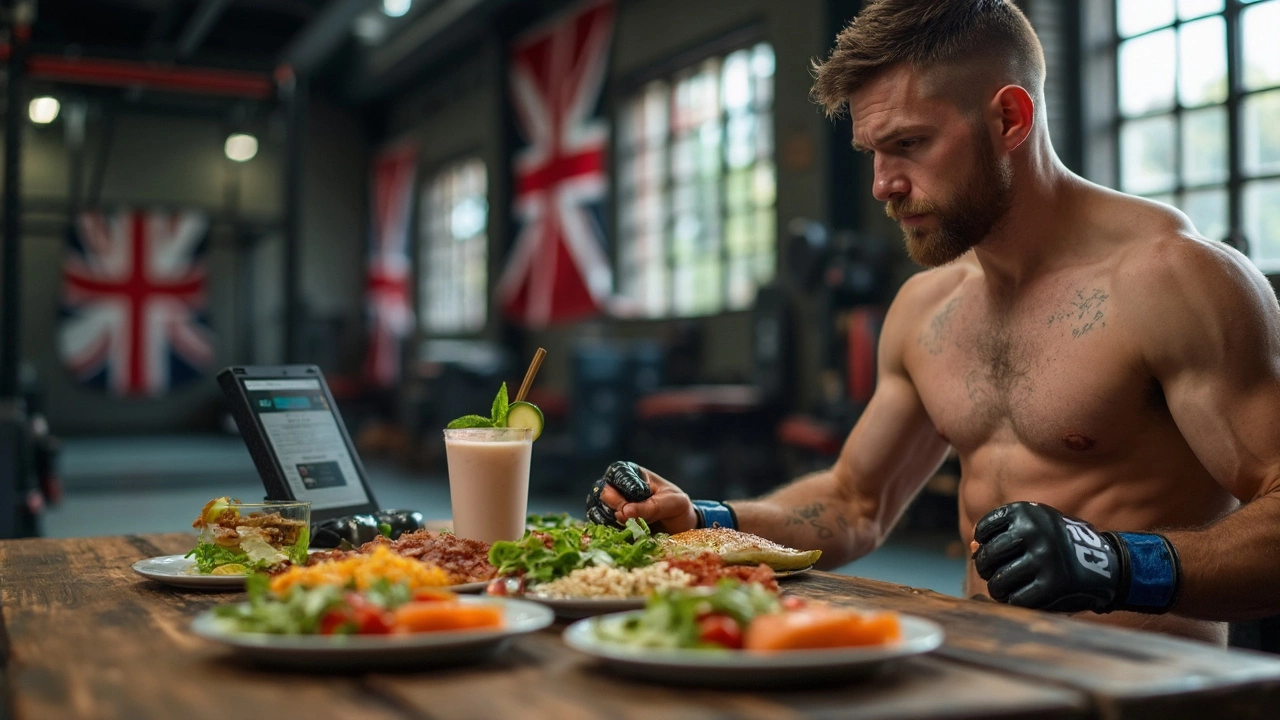Athlete Meal Plans for MMA Fighters
If you’re training for the cage, food is as important as your pads and gloves. You don’t need a fancy chef; you just need a plan that gives you the right fuel at the right time. Below you’ll find why nutrition matters, a quick 7‑day menu, and some tips you can adapt to your own schedule.
Why Nutrition Matters for Fighters
Every round you step into the Octagon drains glycogen, burns protein, and stresses your joints. A balanced diet refills those stores, protects muscle, and speeds recovery. Think of carbs as your engine fuel, protein as the building blocks for punch‑power, and fats as the long‑run energy source. Skipping meals or cutting calories too hard can sap strength, slow reflexes, and make you more injury‑prone.
In the UK MMA scene, many athletes rely on packed lunches or take‑away meals that are high in junk carbs and low in nutrients. Swapping those for whole‑food options can raise your stamina by 10‑15 % without adding a single extra hour in the gym. It’s not about eating less; it’s about eating right.
Sample 7‑Day Meal Plan
Day 1 – Power Start
Breakfast: Oats with banana, honey, and a scoop of whey.
Snack: Greek yogurt with berries.
Lunch: Grilled chicken breast, quinoa, and mixed veg.
Snack: Handful of almonds.
Dinner: Baked salmon, sweet potato, and broccoli.
Day 2 – Recovery Focus
Breakfast: Whole‑grain toast, scrambled eggs, avocado.
Snack: Apple slices with peanut butter.
Lunch: Turkey wrap with spinach, hummus, and whole‑wheat tortilla.
Snack: Cottage cheese with pineapple.
Dinner: Beef stir‑fry with brown rice and bell peppers.
Continue the pattern for Days 3‑7, rotating protein sources (fish, lean beef, tofu) and swapping carbs (sweet potato, rice, pasta) to keep variety. Aim for 1.6‑2.2 g of protein per kilogram of bodyweight daily and 3‑5 g of carbs per kilogram on heavy‑training days.
Hydration is a silent hero. Drink at least 3 L of water each day, and add an electrolyte drink on intense sparring sessions. A simple rule: sip a glass every 30 minutes while you train.
Meal timing matters too. Eat a carb‑protein combo 60‑90 minutes before a workout to maximise energy. After training, hit the “recovery window” with a 3:1 carb‑to‑protein shake within 30 minutes, then follow up with a balanced meal within two hours.
If you’re cutting weight, don’t starve yourself. Reduce calories by 10‑15 % and keep protein high to preserve muscle. Add more veggies, reduce sugary drinks, and use low‑fat dairy to stay full.
Finally, listen to your body. Some fighters feel great on a high‑fat keto‑style plan, others need more carbs. Track how you feel during training, adjust portions, and keep a food diary for a week to spot patterns.
These basics give you a solid foundation for any UK MMA athlete. Stick to whole foods, balance macros, stay hydrated, and time your meals around training. Your performance in the cage will thank you.
- Kaius Farrell
- 0 Comments
Diet Plans of MMA and UFC Athletes: How Fighters Fuel for Glory
MMA and UFC fighters eat like machines—every meal is planned with purpose, aiming for that perfect mix of power, speed, and endurance. This article digs into the real foods fighters swear by, why crash diets can ruin careers, and how lessons from legends can mix with new science. You'll get tips for regular training, dive into weird but true diet stories, and see how fans, fights, and even scandals link back to a fighter’s plate. If you've ever wondered how the pros eat or want a practical guide to MMA nutrition, you're in the right spot.
View More